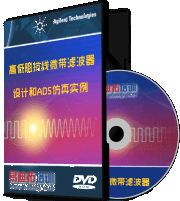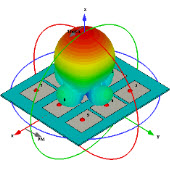学术报告信息(Heather Zheng)
12-12
Tsinghua Information Forum
(partially sponsored by Nokia China Research Center)
Title: Managing the Complexities of Open Spectrum
Speaker: Prof. Heather (Haitao) Zheng (Computer Science Dept, Univ. of California, Santa Barbara)
Time: 14:30-15:45, 15 August, 2006
Place: Room 1-315, FIT Building, Tsinghua University
Contact: Prof. Zhisheng Niu (62781423)
Abstract: Cognitive radios can spark a revolution in wireless communications by making all aspects of
wireless transmission and reception programmable. These devices can intelligently select the transmission
format and media access technology, and modify them dynamically as needed. Specifically, devices equipped
with cognitive radios can continually monitor local spectrum, discover its usage, and dynamically reconfigure
themselves to transmit in appropriate frequencies.
Existing spectrum licensing policies have resulted in spectrum scarcity, including over-allocation and
under-utilization of licensed bands, and an increasingly crowded unlicensed band. By leveraging cognitive
radios, open spectrum systems provide opportunistic spectrum access and exploit underutilized allocated
spectrum. This addresses spectrum scarcity while creating additional capacity for new wireless devices. After
studying open spectrum systems for several years, government, industry and academic groups are now
proposing concrete solutions to the complex challenge of spectrum management. Specifically, we are
addressing issues such as efficient and fair spectrum allocation, distributed coordination, and powerconservation
in spectrum allocation.
While it shows promise, the technology underlying open spectrum systems is still in its infancy. Issues
in wireless communications and networking, once addressed in the context of fixed spectrum assignment, offer
new research challenges in the realm of open spectrum systems. In this talk, we describe some initial studies
on spectrum management of open spectrum systems. We present a set of algorithms that allow fair spectrum
access through the usage of network enforced rules. We introduce both a centralized graph coloring approach
that optimizes spectrum allocation for a static topology, a distributed approach where devices use local
bargaining to adapt spectrum assignment over topology variations, and a light-weight rule based solution that
requires minimum coordination. Next, we discuss a proactive spectrum access scheme to adapt to spectrum
dynamics. We conclude by summarizing this work in context, and discussing future directions in combining
these results with higher layer mechanisms to produce an end-to-end programmable and adaptive network.
Biography
Heather (Haitao) Zheng received her B.S.degree (with highest honor) from Xian
Jiaotong University in July 1995, her M.S.EE and Ph.D degree in Electrical and
Computer Engineering from University of Maryland, College Park, in May 1998
and July 1999, respectively. She joined wireless research lab, Bell-Labs, Lucent
Technologies as a member of technical staff in August 1999, and moved to
Microsoft Research Asia as a project lead and researcher, in March 2004. Since
Sept. 2005, she has been an assistant professor in Computer Science Department,
Univ. of California, Santa Barbara. Dr. Zheng was recently named as the 2005
MIT Technology Review Top 35 Innovators under the age of 35 for her work on
cognitive radios, and was featured in MIT Technology Review’s 10 Emerging
Technologies in 2006. She also received 2002 Bell Laboratories President's Gold
Award from Lucent Bell-Labs, and 1998-1999 George Harhalakis Outstanding
Graduate Student Award from Institute of System Research, University of
Maryland, College Park. She has served as guest editors of JSAC and EURASIP
special issues and TPC members of many conferences. Dr. Zheng’s research area
includes wireless communications and networking and multimedia computing.
(partially sponsored by Nokia China Research Center)
Title: Managing the Complexities of Open Spectrum
Speaker: Prof. Heather (Haitao) Zheng (Computer Science Dept, Univ. of California, Santa Barbara)
Time: 14:30-15:45, 15 August, 2006
Place: Room 1-315, FIT Building, Tsinghua University
Contact: Prof. Zhisheng Niu (62781423)
Abstract: Cognitive radios can spark a revolution in wireless communications by making all aspects of
wireless transmission and reception programmable. These devices can intelligently select the transmission
format and media access technology, and modify them dynamically as needed. Specifically, devices equipped
with cognitive radios can continually monitor local spectrum, discover its usage, and dynamically reconfigure
themselves to transmit in appropriate frequencies.
Existing spectrum licensing policies have resulted in spectrum scarcity, including over-allocation and
under-utilization of licensed bands, and an increasingly crowded unlicensed band. By leveraging cognitive
radios, open spectrum systems provide opportunistic spectrum access and exploit underutilized allocated
spectrum. This addresses spectrum scarcity while creating additional capacity for new wireless devices. After
studying open spectrum systems for several years, government, industry and academic groups are now
proposing concrete solutions to the complex challenge of spectrum management. Specifically, we are
addressing issues such as efficient and fair spectrum allocation, distributed coordination, and powerconservation
in spectrum allocation.
While it shows promise, the technology underlying open spectrum systems is still in its infancy. Issues
in wireless communications and networking, once addressed in the context of fixed spectrum assignment, offer
new research challenges in the realm of open spectrum systems. In this talk, we describe some initial studies
on spectrum management of open spectrum systems. We present a set of algorithms that allow fair spectrum
access through the usage of network enforced rules. We introduce both a centralized graph coloring approach
that optimizes spectrum allocation for a static topology, a distributed approach where devices use local
bargaining to adapt spectrum assignment over topology variations, and a light-weight rule based solution that
requires minimum coordination. Next, we discuss a proactive spectrum access scheme to adapt to spectrum
dynamics. We conclude by summarizing this work in context, and discussing future directions in combining
these results with higher layer mechanisms to produce an end-to-end programmable and adaptive network.
Biography
Heather (Haitao) Zheng received her B.S.degree (with highest honor) from Xian
Jiaotong University in July 1995, her M.S.EE and Ph.D degree in Electrical and
Computer Engineering from University of Maryland, College Park, in May 1998
and July 1999, respectively. She joined wireless research lab, Bell-Labs, Lucent
Technologies as a member of technical staff in August 1999, and moved to
Microsoft Research Asia as a project lead and researcher, in March 2004. Since
Sept. 2005, she has been an assistant professor in Computer Science Department,
Univ. of California, Santa Barbara. Dr. Zheng was recently named as the 2005
MIT Technology Review Top 35 Innovators under the age of 35 for her work on
cognitive radios, and was featured in MIT Technology Review’s 10 Emerging
Technologies in 2006. She also received 2002 Bell Laboratories President's Gold
Award from Lucent Bell-Labs, and 1998-1999 George Harhalakis Outstanding
Graduate Student Award from Institute of System Research, University of
Maryland, College Park. She has served as guest editors of JSAC and EURASIP
special issues and TPC members of many conferences. Dr. Zheng’s research area
includes wireless communications and networking and multimedia computing.
98年拿到硕士,99年拿到博士?真牛
在国外硕士很容易拿的,顺便而已
你应该看看他从本科到博士的时间
她确实很牛了
顺便也不应该到博士毕业前一年才拿硕士吧?说不定还不是本科一毕业就出国呢?
去听的人回来通通气啊,都讲了些什么?强烈建议本版开辟一个“学术讲座沙龙”之类的专栏,说一点讲座上的趣事
射频专业培训教程推荐











